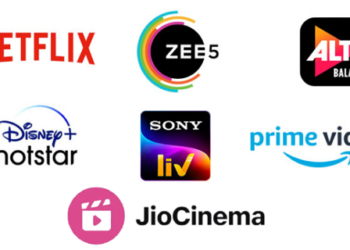While the entire country is under a lockdown, businesses are still operating while working remotely and from homes. The impact on the economy is something that all of us are aware of.
Denstu Aegis Network’s India CEO, Anand Bhadkamkar spoke exclusively to Medianews4u on the implications and impact of Covid-19 on the industry. However, what completely stands out from this interview is the important piece of advice Bhadkamkar gave to marketers and businesses to survive the quarantine and 21-day lockdown imposed by the Government of India.
Edited excerpts.
Impact of Covid-19 on the advertising expenses
Definitely, the impact is massive. It is more where businesses require a personal contact.
Categories such as travel, tourism, hospitality, events businesses, malls activations etc. are a few businesses that have been massively impacted. Due to the impact and resultant downturn, the advertising spends are also restricted.
To speak on the industry-wise impact, travel-tourism and hospitality industries are currently in rough weather. I think as the situation improves things should come back to normalcy, but it looks to be a long haul.
The entertainment industry also has been severely hit. Events have been cancelled and movie theatres are shut, anything where people need to go out is heavily impacted. Whereas, when it comes to digital, the positive side is that the digital content on OTT platforms is getting more traction now.
Changes in consumer behaviour that marketers should keep tabs on
We firmly believe that social media, gaming and all the content on digital should see an immediate upside. Since, parents are now working from home alongside the kids, content consumption would increase. Furthermore, we would also see an increase in the consumption of original content and original programming.
I feel even health apps would see a growth because of the rising awareness around the topic and thus lead to an improvement in all the hygiene categories. Initially, e-commerce was observing some growth but again, there are some negatives and concerns due to the last-mile delivery being restricted; and would continue to be so till lockdowns are relaxed. However, wherever there is no personal (physical) interaction at all, we are hopeful to see a positive story of growth.
Marketing in times of quarantine
Communication certainly should be done responsibly. Awareness of the market conditions should be the key imperative while doing so. Consequently, as things are still unfolding, brands are relooking at their advertising decisions while evaluating the market conditions and their business reviews. Presently, there is a lot of uncertainty and the impact on businesses is still not clear. We will have to wait and watch to get a complete clarity on advertising decisions which are dependent on the same.
But the overall marketing and even core business strategies are getting reworked because of the situation. It is more like a milestone based in that sense; because now definitely 15th April is something everyone is looking at as the first large milestone in this fight against COVID-19. As advised by health experts and government, all the businesses are strictly following the social distancing at least up till 15th April, which should hopefully help to flatten the growth curve of spread of the disease and post that hopefully, gradual recoveries should start.
Meanwhile, whenever brands are communicating they should be more responsible with their communication advocating and supporting safety and security of the society.
Traditional mediums to take a hit
At the current juncture beyond any doubt, it is through social media. Hence, as a platform it is quite effective and critical at the same time. Although, social media at times can get quite negative, so brands need to be careful in their communication and ensuring positive messaging.
Currently, in Mumbai, the government is using the outdoor medium for Coronavirus awareness messaging. If you travel across the city, almost all the hoardings for the short-term are being used for Coronavirus messaging. Responsible messaging is very important.
Advice to Marketers
My advice would be, to support and promote the right message in the immediate society – starting with employees and stakeholders with initiatives such as facilitating work from home for employees and advocating within the wider community. Also, by additionally bringing in more training and awareness initiatives.
As part of marketing and communications initiatives of brands as well, spreading the safety and social distancing messages of government and education about the do’s and don’ts of Coronavirus.
Advice to Businesses from a consultancy point of view
It is definitely in the planning stage. Each company must have their business continuity plan activated, in which typically one must plan for an extreme eventuality and Coronavirus is clearly one such event. As for a lot of businesses, they might be experiencing this for the first time in their business lifecycle.
It’s more of hunkering down for a while, reassuring their stakeholders, employees, customers that they are being prudent and ensuring that the company’s liquidity remains intact. That is something, which companies need to ensure going forward. When the demand comes in, the business will again pick up, it’s always not going to be like what it is today, so for many businesses it will be a slower walk back as well. It is thus very important for them to be responsible and have an open conversation with their stakeholders about business realities, in case the COVID-19 situation gets prolonged.
Long-term strategies would involve diversifying. Having said that, every business is different and hence, it will vary from business to business.
Companies need to have business strategies that go beyond the physical contacts with customers for their sales and have a strong digital presence to drive the same. Additionally, they cannot remain completely media dark as well in these situations. They will have to ensure that they are visible by maintaining their brand presence with effective communication during these trying times with their customers because ultimately when the businesses get back on track, one cannot start from scratch.
















